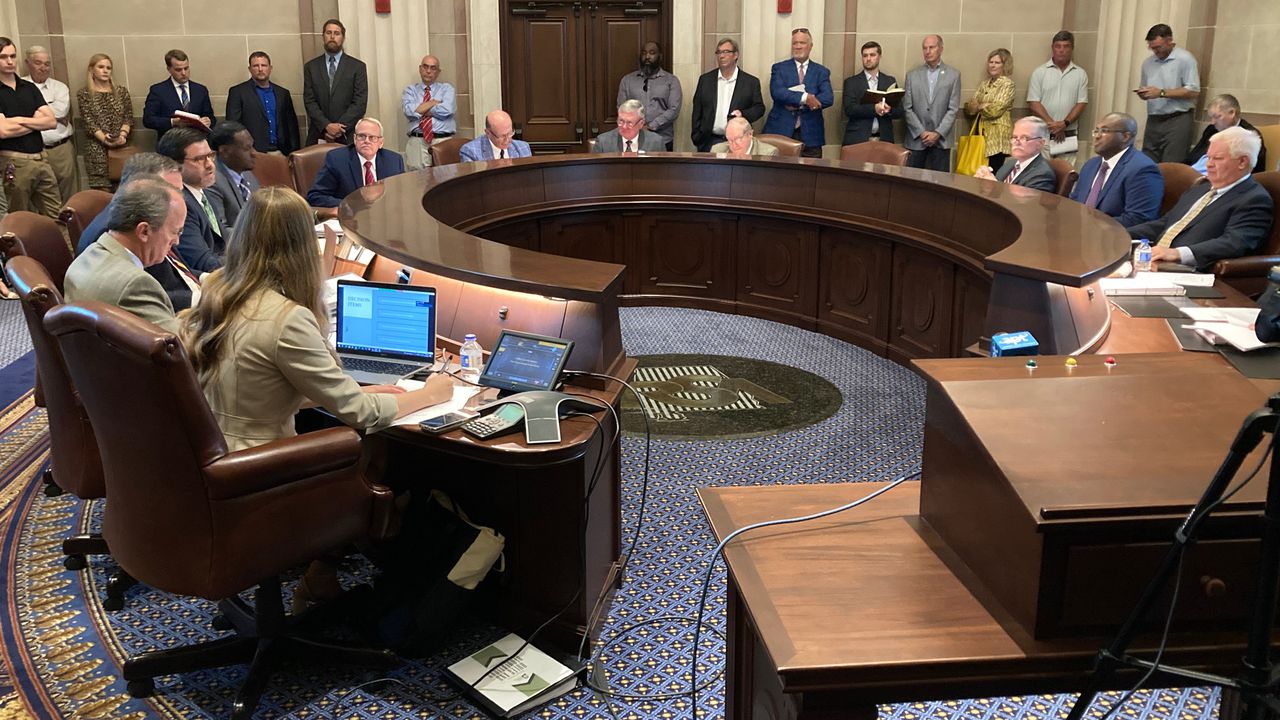Alabamaâs medical marijuana companies await licenses
The Alabama Medical Cannabis Commission is scheduled to award licenses Monday to the companies that will grow, process, transport, test, and sell medical marijuana products.
The AMCC accepted 90 applications during a period that ended in April.
The AMCC met at 9 a.m. Monday and immediately voted to go into an executive session, closed to the public, to consider the applications. The AMCC’s attorney said pending litigation would also be discussed during the closed session. He said the topics for discussion fell under the exceptions allowed under the state’s open meetings law.
AMCC Chairman Dr. Steven Stokes said the commission planned to return to open session by 1 p.m. The open meetings law requires public boards to take votes on official actions during open sessions.
Stokes thanked the applicants for their patience during what he said has been an arduous process. The Legislature passed a bill in 2021 to authorize the medical cannabis industry. Alabama is one of 38 states that have legalized medical cannabis, according to the National Conference of State Legislatures.
Alabama’s industry will be fully intrastate. Doctors who receive certification will be able to recommend medical cannabis products for a wide range of conditions and symptoms. Those include autism spectrum disorder; cancer-related pain, weight loss, and vomiting; Crohn’s Disease; depression; epilepsy or conditions causing seizures; HIV/AIDS-related nausea or weight loss; panic disorder; Parkinson’s Disease; persistent nausea; post-traumatic stress disorder (PTSD); sickle cell anemia; spasticity associated with multiple sclerosis or spinal cord injury; Tourette’s Syndrome; a terminal illness; and conditions causing chronic or intractable pain.
Licensed dispensaries will sell the products, which can include pills, capsules, tinctures, gel cubes, creams, patches, suppositories, nebulizers, and liquids or oils for an inhaler. No raw plant materials or products for smoking or eating will be allowed.
The University of South Alabama helped the AMCC evaluate and rank the applications. The AMCC accepted public comments on the process until May 14.
AMCC officials have said products could be available late this year or early next year. They also said lawsuits challenging the licensing process are a potential snag that could delay that.
This story will be updated.
